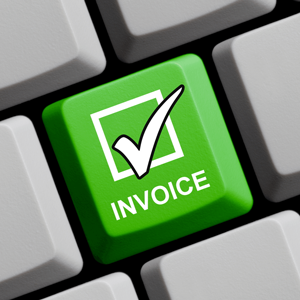Peppol e-invoicing mandate proposed for Australian businesses

Australian business could be mandated to adopt Peppol e-invoicing as soon as 2023 under a government proposal issued just before Christmas. A Consultation Paper issued by the Treasury on December 15 includes a range of legislative options for the Peppol rollout, and comments are being invited up until 25 February 2022.
Consultation will explore whether the rollout should be implemented in phases, starting with large businesses before expanding to medium and small businesses.
Large companies with a turnover of more than $A50 million would be brought into the scheme from mid-2023. It would apply to mid-sized businesses with a turnover of $A10 million to $A50 million from mid-2024, and small businesses with a turnover of less than $A10 million from mid-2025.
According to PwC, “There are many businesses in Australia currently turning over more than $A50 million - under the current proposal, these businesses will have 18 months to become Peppol e-invoicing compliant, which is not much time to plan and implement the technology and business process changes needed to comply with this measure. Projects should be initiated as soon as possible to ensure timing can be met.”
Rather than referring to the proposal as a mandate, it is described as a “Business e-invoicing Right” (BER) by Minster for the Digital Economy, Senator Jane Hume.
A BER would mean businesses are legally obliged to adopt and send e‑invoices if one is requested by an e‑invoicing‑enabled trading partner. The BER scheme would only apply to business-to-business transactions and would not cover business-to-consumer transactions
The BER will effectively make it mandatory for all Australian businesses to be Peppol-enabled by July 2025. This will require acquisition of Peppol-capable financials software and connection and subscription to a Peppol Access Provider.
Australian Commonwealth agencies have been instructed to adopt Peppol eInvoicing by 1 July 2022. All of New Zealand’s Central Government agencies are expected to be eInvoicing ‘receive’ capable by March 31, 2022.
Unofficial sources on the implementation of the e-invoicing mandate in New Zealand are indicating the end of 2022.
According to the Treasury Consultation Paper:
- Adoption of e-invoicing by Australia’s private sector is currently low, with only about 10,000 of the estimated 2.4 million businesses in Australia1 currently registered for Peppol e-invoicing
- It is estimated that Australian businesses exchange more than 1.2 billion invoices a year and around 90 per cent of invoice processing is still fully or partly manual.
Within the Commonwealth’s legislative powers there are two main options to set the scope of who would be captured by the BER and its associated legal obligations, including which businesses can exercise the BER and which would be required to provide Peppol e-invoices when requested. These are:
• establishing the BER through a new Commonwealth regulatory framework
• establishing the BER under the Corporations Act 2001 (Corporations Act).
Both proposed options would leverage existing business identifiers for covered businesses, such as Australian Business Numbers (ABNs) and/or Australian Company Numbers (ACNs), to support identification of which businesses are covered by the BER.
While it operates the Australian Peppol Authority, the Australian Taxation Office (ATO) has been emphatic in insisting that it does not receive a copy of each Peppol e-invoice and is not able to view the contents of any e-invoices being transmitted between businesses.
However, the Treasury Peppol proposal has flagged changes to the laws governing the sharing of taxation data in Australia.
The Government has proposed using tax data from previous years to determine whether a particular business is a small, medium-sized, or large business under the BER.
“At present there are no government systems that would allow a regulator to assess the aggregated turnover of all covered businesses without collecting new information from businesses,” it states.
The Government is also seeking views on how best to enable greater interoperability between EDI networks and the Peppol framework, which could involve requiring that EDI networks used by businesses in Australia must be Peppol-compatible.
https://treasury.gov.au/sites/default/files/2021-12/c2021-185457.pdf
